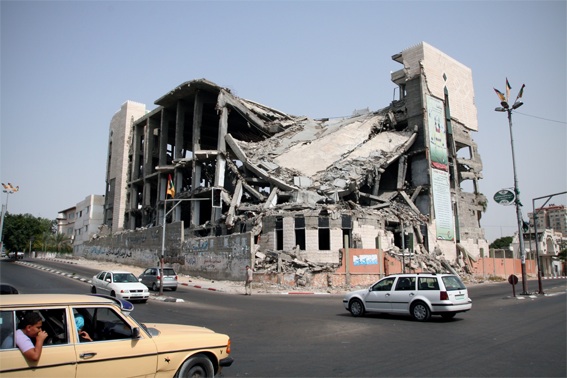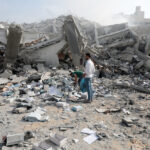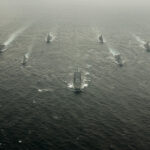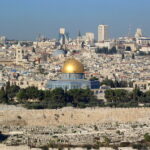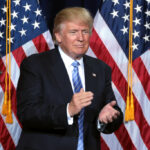Now Reading: New Pope Possesses Attributes That Could Expand Vatican’s Diplomatic Influence in Global Geopolitics
-
01
New Pope Possesses Attributes That Could Expand Vatican’s Diplomatic Influence in Global Geopolitics
New Pope Possesses Attributes That Could Expand Vatican’s Diplomatic Influence in Global Geopolitics
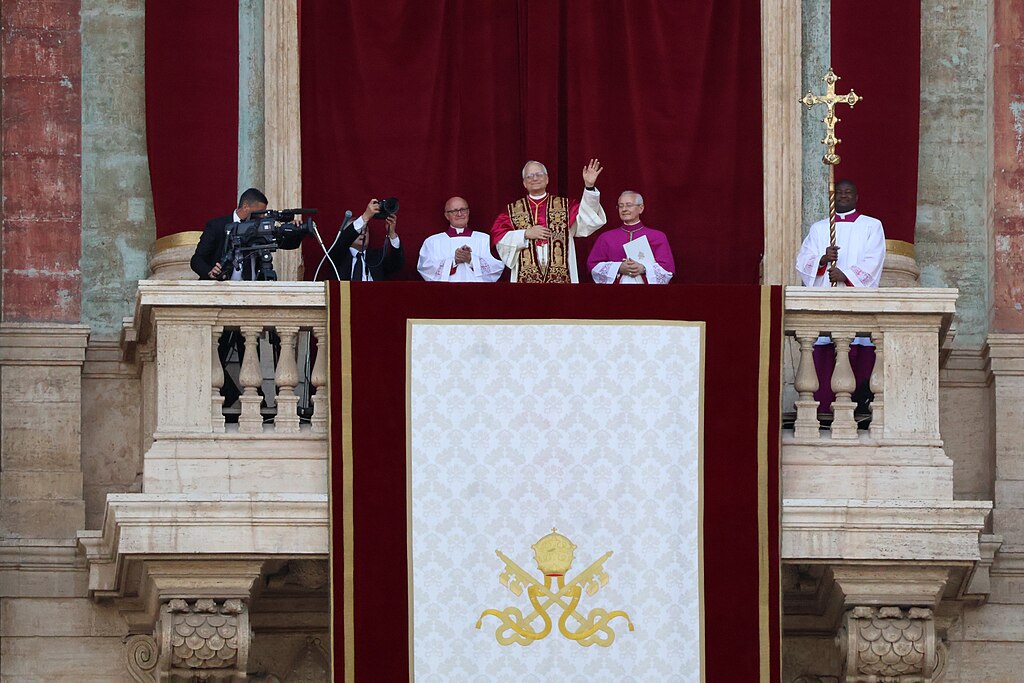
The beginning of Pope Leo XIV’s pontificate coincides with one of the most tense periods in international politics since the end of the Cold War. The current landscape is marked by overlapping crises: a prolonged armed conflict in European territory, exposing the exhaustion of traditional deterrence mechanisms; the escalation of violence in the Middle East; institutional fragmentation in Africa’s Sahel region; and rising rhetoric and military tensions in the Indo-Pacific, where disputes over Taiwan and the South China Sea challenge regional stability and the legitimacy of the current international system.
In this environment saturated with geopolitical rivalries, the figure of the Pope—and particularly that of Leo XIV—emerges as an actor with real potential for political influence. After all, the Holy See’s relevance in geopolitics is not anchored in military strength or economic power but in its moral authority and ability to mobilize an ethical language capable of challenging dominant narratives and catalyzing demands for justice and reconciliation. This influence is not exercised abstractly but through the actions of its specific leader, endowed with his own trajectory, discourse, and discernment—and an audience of over one billion faithful.
Bridging the Global North and South
Leo XIV, the first pontiff born in the United States with Augustinian training and pastoral experience in Latin America, possesses attributes that enhance his ability to mediate between the Global North and South. His trajectory spans contrasting realities of the international system, which may equip him to engage with leaders of nuclear powers like the U.S., Russia, and China, as well as geopolitically and symbolically marginalized actors, such as Latin American and African nations.
In short, the new Pope appears to be a leader who can navigate different agendas and translate diverse concerns into a common language. Moreover, his actions will likely extend beyond the Holy See’s diplomatic infrastructure, which has representation in 184 countries. What will sustain Leo XIV’s global projection is his personal credibility, anchored in speeches aligned with universal values and the symbolic authority associated with the papal office.
Endowed with sacred capital—formed by historical references, institutional practices, and continuity—Leo XIV may influence international debates through speeches, messages, and diplomatic gestures. This authority could shape perceptions and guide positions on sensitive issues. In contexts of asymmetric disputes or moral dilemmas, his actions may legitimize alternatives outside dominant strategic logics.
Thus, understanding Pope Leo XIV’s international projection requires an analytical shift that values individual agency in contexts of dispute and negotiation. His role does not rely on coercive means or state apparatus but on symbolic authority derived from institutional practices, social recognition, and historical continuity. This type of leadership operates indirectly, influencing discourses, shaping perceptions, and legitimizing alternatives that defy deterrence logic.
In situations marked by conflict, diplomatic deadlocks, or ethical dilemmas, his presence may shift the debate’s axis and introduce normative references into spaces typically governed by power calculations. Leo XIV does not impose decisions through material force but intervenes through vocabularies that challenge the logics of realpolitik and recenter values and principles in international politics.
The Concept of Just Peace
In his first Sunday prayer, on May 11, 2025, Leo XIV outlined the ethical contours of his pontificate. Evoking the end of World War II and the warnings of the 21st century, he declared: “The tragedy of the Second World War ended 80 years ago, on May 8, after claiming 60 million lives; in today’s dramatic scenario of a Third World War fought piecemeal, as Pope Francis has repeatedly stated, I address the world’s powerful with this timeless appeal: war, never again!”
Leo XIV’s call for an “authentic, just, and lasting peace” represents more than a pastoral exhortation—it is a political intervention that may reposition international discourse beyond zero-sum geopolitical calculations. By demanding a ceasefire in Gaza, humanitarian aid, and civilian protection, the Pope reiterates the importance of ethics in diplomacy, grounded in human dignity and justice.
This discourse aligns with the concept of “just peace,” formulated by Catholic networks and contemporary theologians. In contrast to the “just war” tradition, just peace proposes constructive criteria for overcoming conflicts, such as restorative justice, victim participation, and social reconstruction. This vision, though not formalized as canonical doctrine, has been promoted since the Second Vatican Council and reinforced by initiatives like Advancing Just Peace and the work of Maryann Cusimano Love.
Moral Diplomacy vs. Realpolitik
The Pope does not engage directly in negotiations, but his discourse challenges the logic of realpolitik, which prioritizes national interest and power. Instead, Leo XIV presents a moral diplomacy that, if consistent, may become an ethical reference on the global stage. His appeal for the “miracle of peace” does not eliminate political obstacles but offers a meaningful metaphorical contrast to the disregard for international norms and the dominance of political interests.
It is too early to gauge the concrete impact Leo XIV will have on transforming international dynamics. However, his early pronouncements and gestures signal an important rhetorical shift: a moral diplomacy that, rather than conforming to a chaotic and conflict-ridden environment, affirms the centrality of reason and compassion as possible foundations for a more enduring peace. Whether these principles will resonate with current leaders remains to be seen—but for now, there are signs that the Pope may help mitigate the hostility-defining logic of our time. Time will tell.
Translated text of the article Novo papa reúne atributos que podem ampliar influência diplomática do Vaticano na geopolítica mundial, by Alexandre Ramos Coelho published on The Conversation under the license of Creative Commons Attribution 3.0. Read the original in: The Conversation.
Stay Informed With the Latest & Most Important News
-
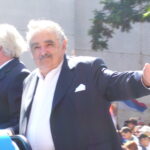 01Pepe Mujica: The Rich Legacy of the Peasant Who Knew How to Make Concessions to the Market Without Losing Ideological Direction
01Pepe Mujica: The Rich Legacy of the Peasant Who Knew How to Make Concessions to the Market Without Losing Ideological Direction -
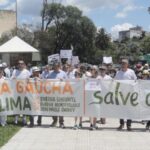 02Democracy in the Face of Ecological Collapse
02Democracy in the Face of Ecological Collapse -
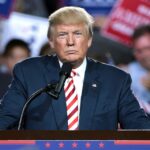 03New modelling reveals full impact of Trump’s ‘Liberation Day’ tariffs – with the US hit hardest
03New modelling reveals full impact of Trump’s ‘Liberation Day’ tariffs – with the US hit hardest -
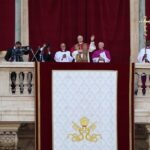 04New Pope Possesses Attributes That Could Expand Vatican’s Diplomatic Influence in Global Geopolitics
04New Pope Possesses Attributes That Could Expand Vatican’s Diplomatic Influence in Global Geopolitics -
 05What’s so special about Ukraine’s minerals? A geologist explains
05What’s so special about Ukraine’s minerals? A geologist explains -
 0650 years later, Vietnam’s environment still bears the scars of war – and signals a dark future for Gaza and Ukraine
0650 years later, Vietnam’s environment still bears the scars of war – and signals a dark future for Gaza and Ukraine -
 07China’s new underwater tool cuts deep, exposing vulnerability of vital network of subsea cables.
07China’s new underwater tool cuts deep, exposing vulnerability of vital network of subsea cables.




